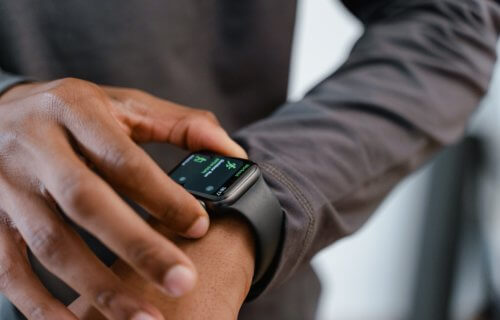
‘There are some limitations for people with darker skin tones when using these devices.’
WASHINGTON — Does skin color determine how well wearable devices work when it comes to tracking a user’s heart health? A new study suggests it does as smartwatches appear to provide less accurate data for people with darker skin tones.
Joggers and other fitness fans are increasingly turning to these trendy devices to monitor their heart rate and body rhythms during exercise. Even more people are using them to keep track of their overall health and sleep quality.
However, a resident physician at the University of Alberta found the measurements may be less accurate depending on skin tones. The findings come from a systematic review of 10 previously published studies involving more than 460 participants. The research is the first to pool figures from multiple studies to specifically examine how skin tone may affect the accuracy of heart data in wearables.
“People need to be aware that there are some limitations for people with darker skin tones when using these devices, and the results should be taken with a grain of salt,” says study co-leader Dr. Daniel Koerber in a media release.
“Algorithms are often developed in homogeneous white populations, which may lead to results that are not as generalizable as we would like. Ongoing research and development of these devices should emphasize the inclusion of populations of all skin tones so that the developed algorithms can best accommodate for variations in innate skin light absorption.”
Light beams have trouble with certain skin tones
The research team identified 10 studies, from 622 scientific papers, that reported heart rate and rhythm data for consumer wearable technology according to a participant’s race or skin tone. Of those studies, four found that heart rate measurements were “significantly less accurate” in darker-skinned people compared with either lighter-skinned individuals or measurements from validated devices, such as chest strap monitors or electrocardiograms.
One study reported that although there was no difference in heart rate accuracy, wearable devices recorded “significantly fewer” data points for people with darker skin. Dr. Koerber explains that most wearables detect heart rate and rhythm by aiming a beam of light at the wrist and then detecting how much light is absorbed. Greater light absorption indicates a greater volume of blood flowing through the veins under the skin.
The study results suggest that the signaling process might not work as well with darker skin that contains more melanin, which absorbs light. In addition to the rising use of wearables to monitor physical activity and sleep patterns, interest in the use of consumer wearables for medical research and even early detection of heart problems has increased in recent years.
“There are a lot of claims that these devices can detect heart rhythm issues like tachycardia, bradycardia and even atrial fibrillation,” Dr. Koerber says. “We want to be able to inform health care providers about whether these are reliable sources for collecting data in all patients, regardless of skin tone.”

Could green light be the answer?
The researchers say the study underscores the importance of ensuring technology meets the needs of diverse populations, especially when their job is to improve health. The team notes that recent studies have found that other devices – such as pulse oximeters which measure the amount of oxygen in the blood – also don’t perform as well for people with darker skin tones. This can lead to serious health consequences if problems go undetected.
“It is important to explore alternative options to make sure we can create a more equitable solution in health care and not just in the consumer industry,” Dr. Koerber concludes.
Researchers add there is some evidence that certain wavelengths of light, particularly green light, are more accurate across all skin tones.
The researchers are presenting their findings at the American College of Cardiology’s 71st Annual Scientific Session.
South West News Service writer Stephen Beech contributed to this report.

Smart watches are racist! I knew it.